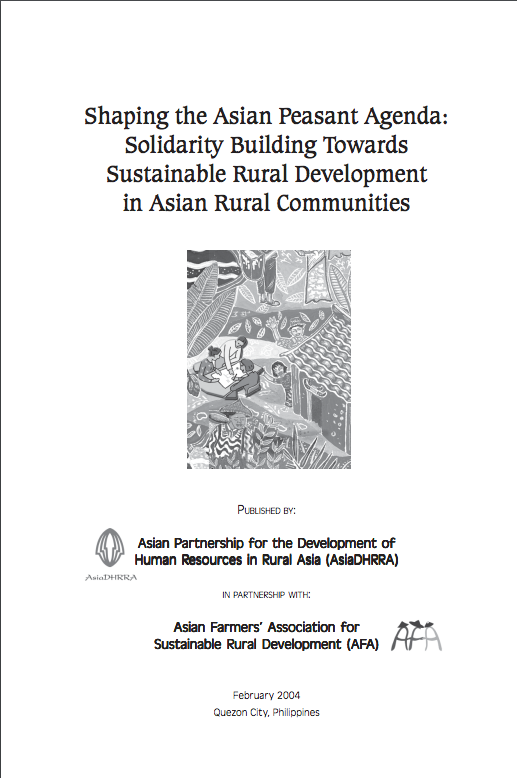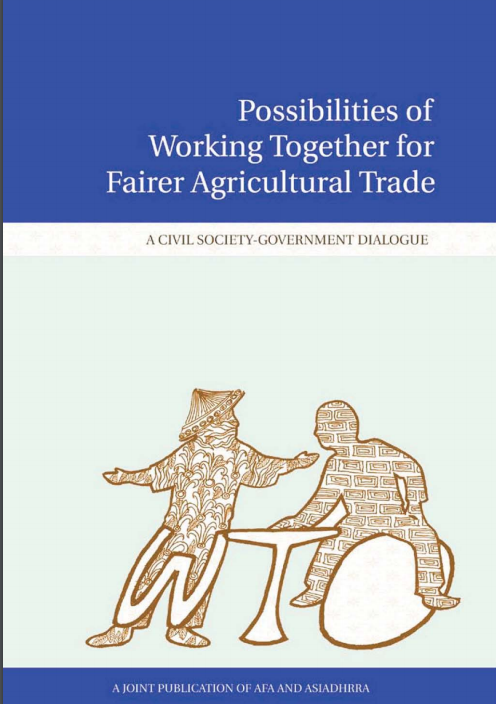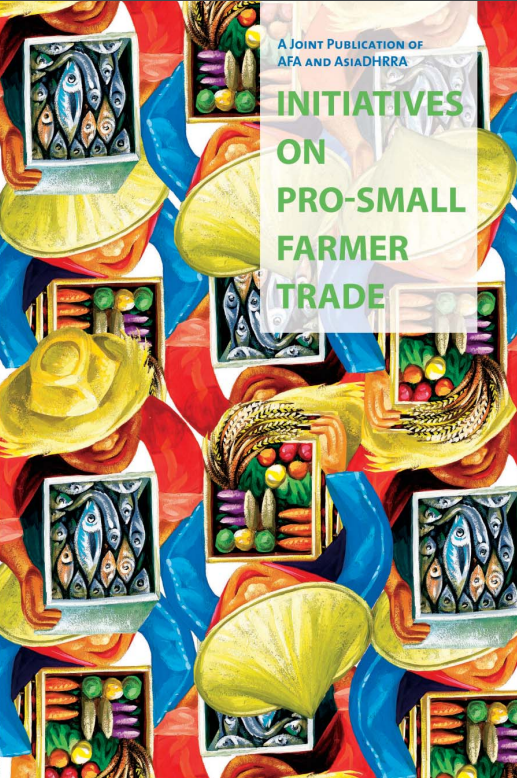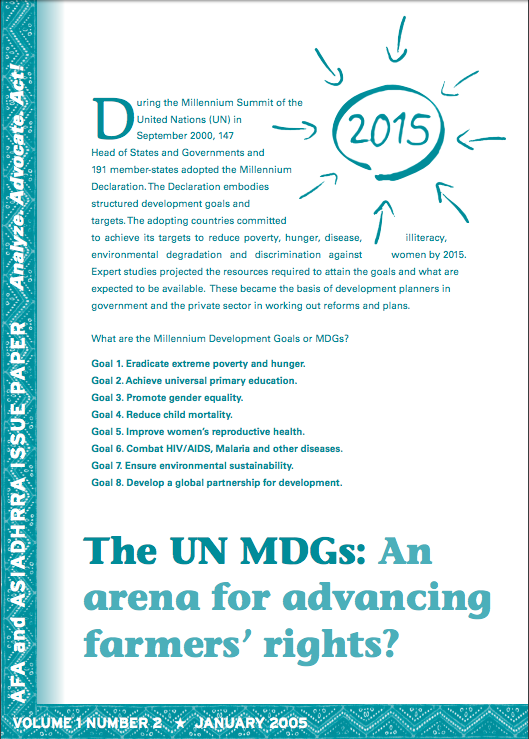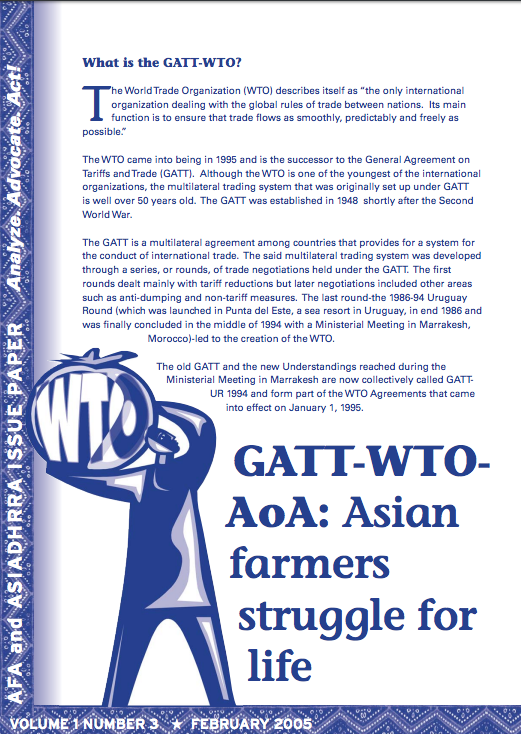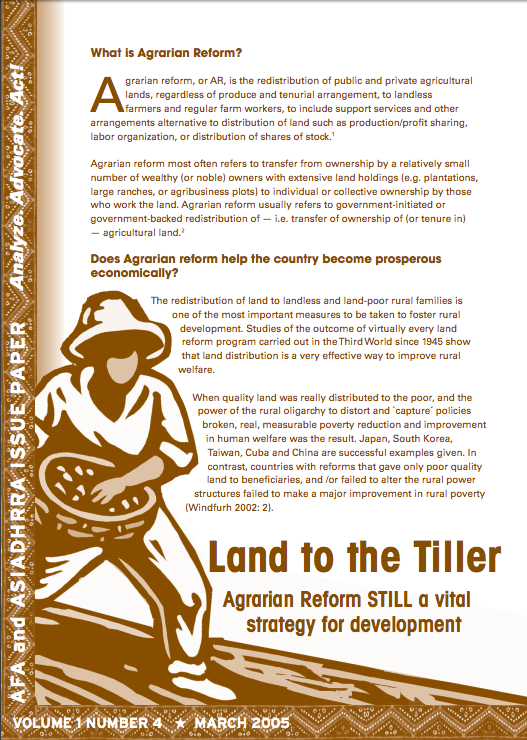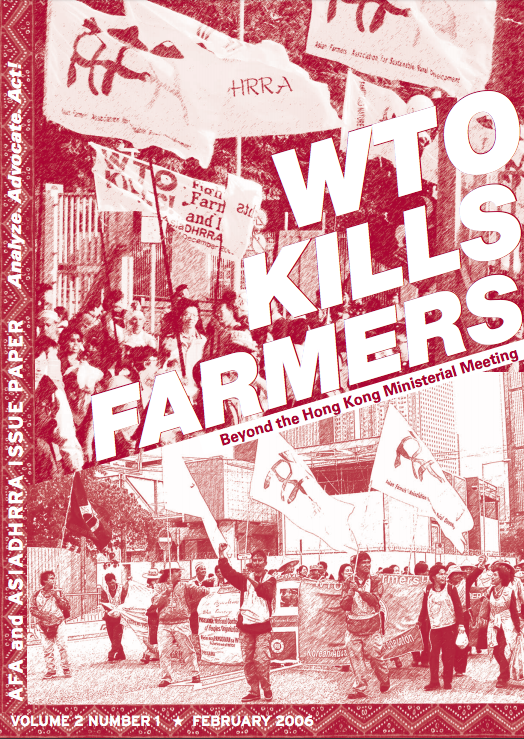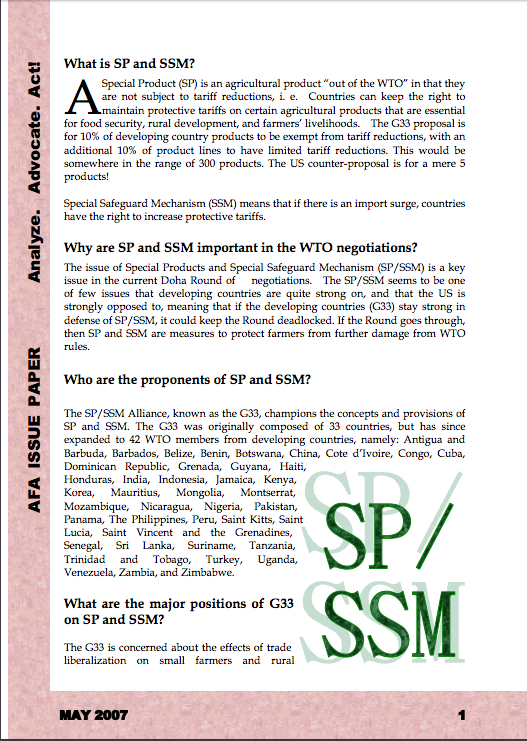Details
Location
Contributions
Displaying 1891 - 1900 of 2403Shaping the Asian Peasant Agenda: Solidarity Building Towards Sustainable Rural Development in Asian Rural Communities
This book, “Shaping the Asian Peasant Agenda: Solidarity Building Towards Sustainable Rural Development in Asian Rural Communities”, portray the perspectives of AFA and AsiaDHRRA on the agrarian and agricultural situation in their own countries and of the sub-region. It contains country reports, workshop results and lectures of keynote speakers and resource persons, presented during the sub-regional conferences conducted by AFA from August till October of 2003.
Civil Society – Government Dialogue: Possibilities of Working Together for Fairer Agricultural Trade
CONFERENCE PROCEEDINGS
Initiatives On Pro-Small Farmer Trade
Contents:
- The Seikatsu Club Consumers Cooperative: A Unique Producer-Consumer Relationship in Japan
- PDAP’s Push for Organic Rice: Enhancing the Survival of Filipino Rice Farmers in a Liberalized Economic
- Setting Green Net: A Trailblazer in Organic Marketing in Southeast Asia
- The Fair Trade System: Focus on the Oxfam-GB Model
- Emergency or Expediency?: A Study of Emergency Rice Reserve Schemes in Asia
Asian Farmers Fight for Survival and Control of the Rice Industry
Rice is a very important commodity in our lives, as it is the staple food of about 3 billion, or three quarters, of the people in the world. Two hundred fi fty million farmers depend on rice cultivation. Ninety percent of the world’s rice is produced and consumed in Asia.
The UN MDGs: An arena for advancing farmers’ rights?
During the Millennium Summit of the United Nations (UN) in September 2000, 147 Head of States and Governments and 191 member-states adopted the Millennium Declaration. The Declaration embodies structured development goals and targets. The adopting countries committed to achieve its targets to reduce poverty, hunger, disease, illiteracy, environmental degradation and discrimination against women by 2015. Expert studies projected the resources required to attain the goals and what are expected to be available.
GATT-WTOAoA: Asian farmers struggle for life
What is the GATT-WTO?
The World Trade Organization (WTO) describes itself as “the only international organization dealing with the global rules of trade between nations. Its main function is to ensure that trade fl ows as smoothly, predictably and freely as possible.”
Land to the Tiller: Agrarian Reform STILL a vital strategy for development
Agrarian reform, or AR, is the redistribution of public and private agricultural lands, regardless of produce and tenurial arrangement, to landless farmers and regular farm workers, to include support services and other arrangements alternative to distribution of land such as production/profi t sharing, labor organization, or distribution of shares of stock.
WTO Kills Farmers: Beyond the Hong Kong Ministerial
The World Trade Organization (WTO) hailed the recent Hong Kong Sixth Ministerial Meeting last December 2005 as a positive movement towards the conclusion of the Doha Development Round. The round was supposedly geared towards ensuring that trade contributes to the development objectives of least developed and developing countries.
SP/SSM
A Special Product (SP) is an agricultural product “out of the WTO” in that they are not subject to tariff reductions, i. e. Countries can keep the right to maintain protective tariffs on certain agricultural products that are essential for food security, rural development, and farmers’ livelihoods. The G33 proposal is for 10% of developing country products to be exempt from tariff reductions, with an additional 10% of product lines to have limited tariff reductions. This would be somewhere in the range of 300 products. The US counter-proposal is for a mere 5 products!
Asian Partnership for the Development of Human Resources in Rural Asia
AsiaDHRRA traces its earliest roots to the 1974 Development of Human Resources in Rural Asia Workshop (DHRRAW) held in Thailand. It is a regional partnership of eleven (11) social development networks and organizations in eleven (11) Asian nations that envisions Asian rural communities that are just, free, prosperous, living in peace and working in solidarity towards self-reliance. To achieve this, the network’s mission is to be an effective


